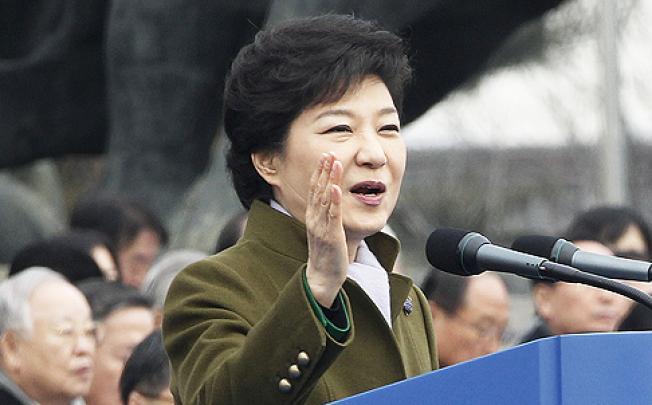
In a cabinet meeting, Park instructed the Unification Ministry to offer Pyongyang discussions on the Kaesong complex, which lies 10 kilometres inside the North Korean side of the joint border.
Established in 2004 as a rare symbol of inter-Korean cooperation, Kaesong was the most high-profile casualty of two months of elevated tensions that followed the North's nuclear test in February.
Pyongyang barred South Korean access to the zone and pulled out all its 53,000 workers early last month. Seoul withdrew the last of its nationals 10 days ago.
The South Korean government has already agreed to provide 300 billion won ($270 million) in emergency compensation to investors from the 120 South Korean firms in Kaesong who were forced to shut down operations.
Estimates of their total losses range from 1.0 trillion to 3.0 trillion won.
When they pulled out, company officials loaded down cars with packages of products, but were still forced to leave large stocks of goods behind.
"I want the Unification Ministry to propose talks with North Korea so that the firms can reduce losses by taking out finished products and raw materials, left behind at Kaesong, at an early date," Park told the cabinet meeting, according to a pool report.
The last group of South Koreans left the zone on May 3 after the South sent $13 million in cash to cover unpaid wages and taxes.
Neither side has officially declared a permanent shutdown of Kaesong, with the South continuing to supply a minimum amount of electricity to the empty complex.
Pyongyang has said re-starting the complex would require Seoul to cease all "hostile acts and military provocations" including joint South Korea-US military drills.


1729662874-0/One-Direction-(1)1729662874-0-165x106.webp)














COMMENTS
Comments are moderated and generally will be posted if they are on-topic and not abusive.
For more information, please see our Comments FAQ